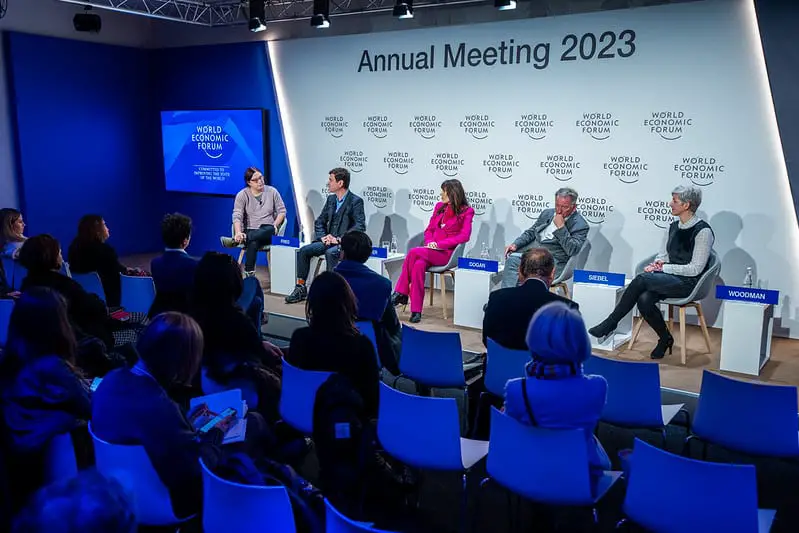The recent breakthroughs in artificial intelligence, such as ChatGPT, were the focus of tech discussion at the World Economic Forum this week.
Key Details
- For years tech experts have worked on AI tools to generate images and intelligently converse with users, but the speed of recent breakthroughs has shocked experts.
- World leaders gathered in Davos, Switzerland, for the World Economic Forum this week frequently discussed the implications of ChatGPT and how the AI tool could be relevant in their respective businesses.
- While users still don’t know exactly how ChatGPT will change technology going forward, they do know that this represents a massive shift in how we use tech.
Why it’s news
At this point, the possible applications of AI seem endless. Some are already suggesting that the tools could be helpful in health care or expanding access to legal services.
Others are concerned that the world may not be ready for tools like ChatGPT. “If we get AI wrong, it could be the dystopia of our world. It’s that serious, what we are facing,” chair of e-commerce company Hepsiburada Hanzade Dogan said in a panel discussion.
One of the initial focuses on possible AI applications has been its ability to alleviate strain on the health-care system and provide broader access to medical assistance. However, ChatGPT’s training isn’t perfect. The bot is filled with data that could be considered misinformation and can sometimes make mistakes. Additionally, much of the information fed to the AI comes from particular areas of the world, potentially polluting the bot with a strong bias.
In one example, software company C3.ai declined a military contract that would have used AI to select individuals for promotion within the Army. CEO Tom Siebel said his company declined because they realized the bot preferred white, male West Point graduates over other potential candidates.
Event attendees also raised concerns about how the new AI tools could potentially play out with current employment opportunities. The general solution proposed is that governments should train their people to adapt to a world with changing opportunities, Axios reports.
The benefits and potential downsides of the emerging tech have already led governments to discuss the potential regulations on AI. The European Union is working to develop the AI Act. AI still has some significant issues to resolve before its use is widespread, but at the rate the new technology is emerging, it doesn’t seem like the improvements will take long.
